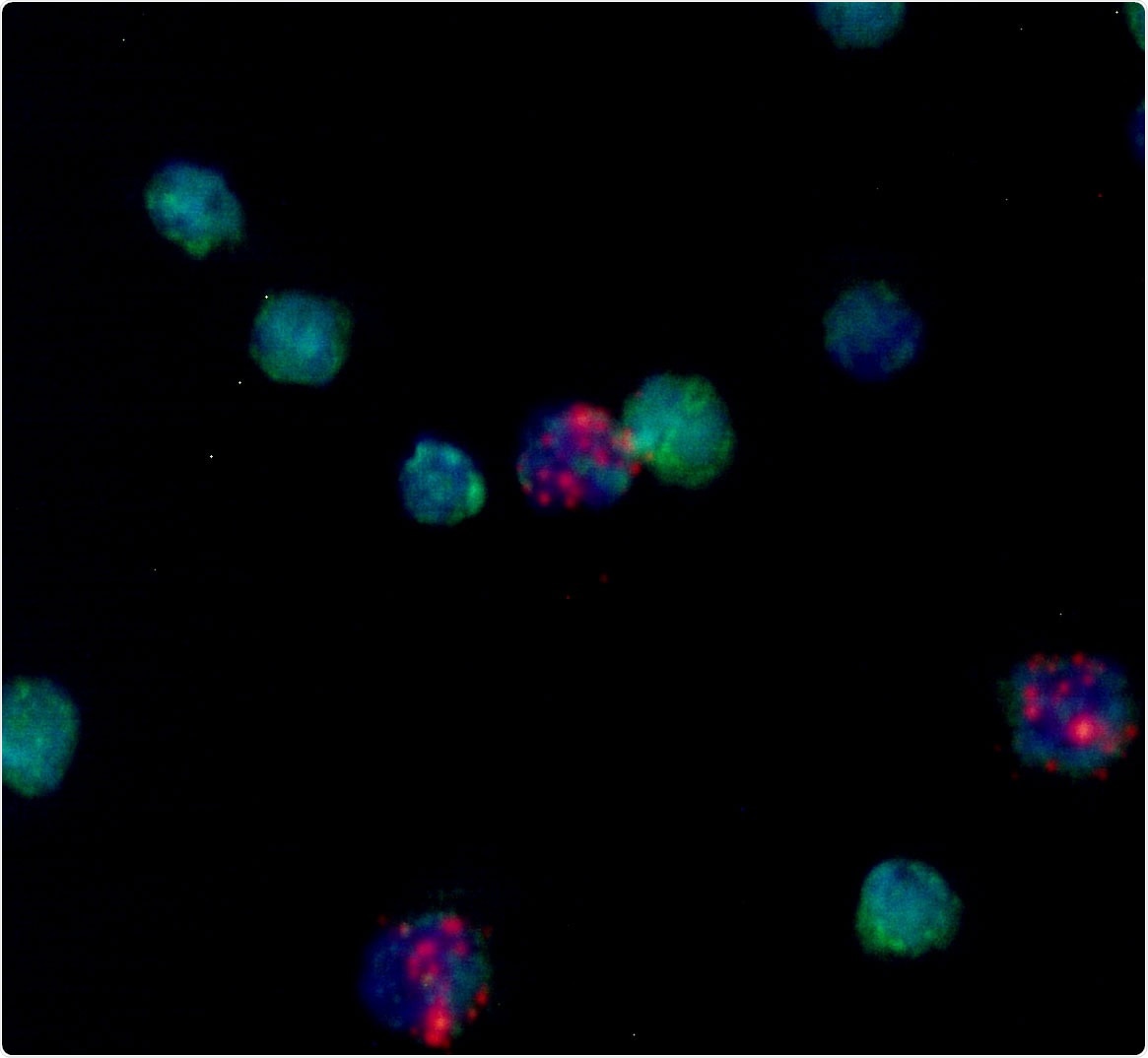Recent research detailing mosquito immune cells provides insights into the insect immune system and how mosquitoes transmit parasites that result in malaria.

This magnified image shows a mixed population of mosquito immune cells denoted by the expression of distinct cellular markers displayed by green and red colors. Studying the differences among mosquito immune cells could help scientists learn how the insects transmit disease to humans and other species. Image Credit: Ryan Smith.
The research published in the peer-reviewed scientific journal eLife pinpoints various new forms of mosquito immune cells, offering new insights into the mosquito immune system.
Immune cells play a vital role in the immune response of mosquitoes toward malaria parasites and viruses after these pathogens are taken up upon feeding on an infected person. This field of study was not well-known owing to the lack of genetic tools, says Ryan Smith, an associate professor of entomology at Iowa State University and lead author of the study.
These experiments lay the foundation for a better understanding of how these immune cells function that could lead to a future when humans are able to make mosquitoes unable to transmit disease.”
Ryan Smith, Study Lead Author and Associate Professor, Entomology, Iowa State University
The recent research employed single-cell RNA sequencing, a relatively novel method that enables scientists to analyze the cellular messages inside individual cells, to characterize mosquito immune cells, called hemocytes. The research observed that mosquito hemocytes displayed higher complexity than assumed earlier, indicating cell differentiation and that certain cells may even undergo a maturation process.
The scientists also provided comparative analysis to single-cell studies in other insect systems, emphasizing crucial similarities and differences between mosquitoes and other insects.
The current research is a vital first step for future exploration of the mosquito immune system, which can be important for obtaining a deeper understanding of how mosquitoes transfer pathogens, like malaria parasites, to humans through their bite.
There’s a big body of evidence that suggests that immune cells of mosquitoes are really critical to their ability to transmit disease. From that perspective, we haven’t really known a great deal about the molecular aspect of what those immune cells look like.”
Ryan Smith, Study Lead Author and Associate Professor, Entomology, Iowa State University
Earlier evidence indicates that immune cells mediate disease pathways in mosquitoes and play important roles in killing malarial parasites at various stages in the mosquito host. The current research sets the stage for future studies intending to answer those questions, stated Smith.
Smith anticipates a future, even though it is years away, where this line of research could direct to the development of mosquitoes genetically altered to overexpress some immune cell populations that decrease the capability of a mosquito to transmit pathogens that induce mosquito-borne disease.
These resistant mosquitoes can later be introduced into wild mosquito populations to breed and spread these genetic traits. The result may be mosquito populations that are less probable to cause disease to humans, though Smith notes that it is all theoretical at this moment.
Source:
Journal reference:
Kwon, H., et al. (2021) Single-cell analysis of mosquito hemocytes identifies signatures of immune cell subtypes and cell differentiation. eLife. doi.org/10.7554/eLife.66192.